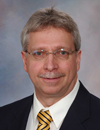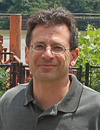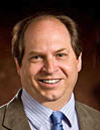Leaders
CONFERENCE CO-CHAIRS

IRENE S. DAVIS
mcclay@udel.edu
Irene S. Davis is a professor in the Physical Therapy Department at the University of Delaware and Director of UD’s Running Injury Lab.
In addition, she is Director of Research for Drayer Physical Therapy Institute. She holds bachelor’s degrees in exercise science from the University of Massachusetts and physical therapy from the University of Florida. She earned her master’s degree from the University of Virginia and her PhD from Penn State University, both in biomechanics.
Davis has been studying the relationships among lower extremity structure, mechanics and injury in runners for the past 20 years. Current areas of study include mechanical factors in tibial stress fractures and patellofemoral disorders along with the effect of physical therapy interventions such as gait retraining. Her work has been funded by the Department of Defense, the Army Research Office, and the National Institutes of Health.
Davis has lectured nationally and internationally and authored over 90 publications. She has been active professionally in the American Physical Therapy Association, the American Society of Biomechanics, and the International Society of Biomechanics. She is also a Fellow of the American College of Sports Medicine and current Past-President of the American Society of Biomechanics.
She has organized and coordinated national research retreats on topics of the foot and ankle, anterior cruciate ligament injuries and patellofemoral pain syndrome. She has been featured on ABC as well as in the New York Times and the Wall Street Journal.

STEVEN STANHOPE
Stanhope@udel.edu
Steven J. Stanhope is a professor at the University of Delaware with joint academic appointments in the Department of Health, Nutrition, and Exercise Sciences; the Biomechanics and Movement Science interdisciplinary graduate program; and the Department of Mechanical Engineering.
He received his Ph.D. from the University of Maryland, College Park. Stanhope established and directed the Biomechanics Laboratory at the National Institutes of Health (NIH), where he served as the founding director of the Physical Disabilities Branch; was the founder and principal coordinator for the US-Italian rehabilitation research cooperation; the principal coordinator for the Interagency Disability and Rehabilitation Research Initiative; won the 2004 Clinical Center Director’s Award for Science; and spearheaded the design and execution of the 1996 Gait Analysis in Rehabilitation Medicine priorities conference.
Stanhope’s research interests include rehabilitation and orthopaedic biomechanics; movement analysis methodologies; prosthetics and orthotics; aging and chronic conditions; and recently childhood obesity. He is a founding member of both the SIAMOC and the Gait & Clinical Movement Analysis (GCMA) Society. He has served as the GCMAS society President, and on the Society’s Board of Directors. Stanhope has served on study sections for the NIH, Department of Education (NIDRR), and the National Science Foundation. Stanhope has an extensive list of indexed publications, invited presentations and inventions.
CONFERENCE ORGANIZERS

KENTON R. KAUFMAN
kaufman.kenton@mayo.edu
Dr. Kenton R. Kaufman is the W. Hall Wendel Jr. Musculoskeletal Research Professor, Professor of Biomedical Engineering, Director of the Biomechanics-Motion Analysis Laboratory, and Consultant in the Departments of Orthopedic Surgery, Physiology and Biomedical Engineering at the Mayo Clinic.
He is a registered professional engineer. He received a Ph.D. in biomechanical engineering from North Dakota State University. Kaufman’s primary areas of expertise are in-vivo dynamic assessment of musculoskeletal function and musculoskeletal modeling. His work is primarily translational, as he collaborates with orthopedic surgeons, neurologists, physiatrists, orthotists, prosthetists and other scientists to improve the knowledge, diagnosis, and treatment of human musculoskeletal injury and disease.
His research has focused on neuromuscular function and treatment of musculoskeletal disease, including neuromuscular disorders, osteoarthritis, prosthetics and orthotics. He currently holds several grants from NIH, with projects aimed at improving the mobility of disabled individuals.
He is the co-inventor of the SensorWalk, a stance-control orthosis on the commercial market. He has also conducted research to decrease overuse injuries in military recruits and developed the combat boots worn by the U.S. Marine Corps.
He has published over 140 scientific peer-reviewed papers and 35 book chapters. He holds 4 US patents and one international patent. Kaufman has won a number of awards for his research, including his election in 2002 as a Fellow in the American Institute for Medical and Biological Engineering.

LOUIS A. QUATRANO
quatranl@mail.nih.gov
Louis A. Quatrano is a psychologist at the National Center for Medical Rehabilitation Research (NCMRR). He completed his undergraduate education at SUNY at Geneseo and received his doctoral degree from Northwestern University.
He initially joined the NIH as a health scientist administrator in the Prevention, Education, and Manpower Branch of the Division of Lung Diseases at NHLBI, where he was involved in transferring basic science into clinical practice and directing the training program in pulmonary research. He went on to become the scientific review administrator for the Human Development and Aging Study Section and the referral officer for SBIR applications in the NIH Division of Research Grants, which is now the Center for Scientific Review.
Quatrano is director of the NCMRR’s Behavioral Sciences and Rehabilitation Technologies (BSRT) Program.

NANCY L. SHINOWARA
shinowan@mail.nih.gov
Nancy L. Shinowara is program director of the Spinal Cord and Musculoskeletal Disorders and Assistive Devices Program at the National Center for Medical Rehabilitation Research (NCMRR) within the Eunice Kennedy Shriver National Institute of Child Health and Human Development.
Shinowara received her A.B. in biology from Mount Holyoke College and her Ph.D. from Northwestern University in biological sciences/neurosciences. Prior to joining the NCMRR in 2003, she was with the NIH Center for Scientific Review for nearly eight years, serving as scientific review administrator for several study sections, including those for small business proposals in rehabilitation medicine and orthopedic medicine and special reviews for grant mechanisms involving biotechnology and bioengineering.
She was also a Spencer Foundation Fellow in the Division of Biology, California Institute of Technology, and a senior staff fellow in the Laboratory of Neuroscience at the National Institute of Aging. Prior to returning to NIH, Shinowara was assistant professor of medicine at SUNY Stony Brook and director of Renal Cell Biology and Electron Microscopy at Winthrop University Hospital in Mineola, New York.
KEYNOTE SPEAKERS

RICHARD L. LIEBER
Richard L. Lieber is Professor and Vice-Chairman of the Department of Orthopedic Surgery at the University of California, San Diego. He earned his Ph.D. in biophysics from U.C. Davis in 1982 developing a theory of light diffraction that was applied to mechanical studies of single muscle cells.
He joined the faculty of U.C. San Diego in 1985 where he continues studies of structure-function relationships in skeletal muscle. Lieber has published over 170 articles in journals ranging covering basic and applied research. His recent work has focused on understanding gene expression patterns in muscles subjected to high stress and performing mechanistic studies of muscles in which genes are introduced in an attempt to change their mechanical function.
Lieber has received the highest award for research by the American Academy of Orthopaedic Surgeons (Kappa Delta Award), the American Bone and Joint Surgeons (Nicolas Andry Award), and the American Society for Biomechanics (Borelli Award). He is a fellow of the American College of Sports Medicine, and in 2007 he received a Fullbright Fellowship to work in Sweden from the Council for the International Exchange of Scholars.
Lieber’s research is supported primarily by grants from the Department of Veterans Affairs and the National Institutes of Health.

RICHARD R. NEPTUNE, Ph.D.
Dr. Richard R. Neptune earned his Ph.D. in Mechanical Engineering from the University of California, Davis in 1996 and is currently an Associate Professor in the Department of Mechanical Engineering at The University of Texas at Austin. His research interests are in the areas of biomechanics and neuromotor control of human movement.
His research integrates experimental analyses with computer modeling and simulation techniques to analyze normal and pathological movement to identify the neuromotor and biomechanical mechanisms that contribute to locomotor impairments and assist clinicians and physical therapists in developing effective rehabilitation strategies.
His work also focuses on optimizing orthotic and prosthetic designs to enhance mobility using additive manufacturing techniques. He has published over 70 journal articles related to his research and is an Associate Editor for the ASME Journal of Biomechanical Engineering. His research is supported by the National Science Foundation, National Institutes of Health, and Department of Veterans Affairs.
He has received the American Society of Biomechanics Young Scientist Award, a CAREER award from NSF, and the Da Vinci Award from the Engineering Society of Detroit and National Multiple Sclerosis Society for the application of selective laser sintering techniques to improve mobility for those with lower-limb disabilities. He also received the Outstanding Young Scientist Award from the Houston Society for Engineering in Medicine and Biology. He currently holds the George and Dawn L. Coleman Centennial Fellowship in Engineering.

SCOTT TASHMAN
Scott Tashman is director of the Biodynamics Laboratory and associate professor of orthopaedic surgery, with secondary appointments in bioengineering and mechanical engineering, at the University of Pittsburgh.
Before earning his PhD in mechanical engineering from Stanford University, he ran the Gait Analysis Laboratory at Newington Children’s Hospital in Hartford, Conn., where he helped to develop and then ran one of the first automated, 3D video-motion analysis systems. Prior to his appointment at Pittsburgh, he directed the Motion Analysis Laboratory at Henry Ford Hospital in Detroit, where he developed the first dynamic biplane radiographic imaging system for musculoskeletal studies.
His primary areas of expertise are in vivo, dynamic assessment of joint function and musculoskeletal modeling. His research has focused on the relationships between neuromuscular function and the development and treatment of musculoskeletal injury/disease, including neuromuscular disorders (cerebral palsy), spinal cord injury, ligament/meniscus injury, osteoarthritis and disorders of the cervical and lumbar spine.
His work is primarily translational, working together with orthopaedic surgeons and other scientists on in vivo human studies to improve knowledge, diagnosis and treatment of human musculoskeletal injury/disease.

DAVIS S. TULSKY, Ph.D.
David S. Tulsky is vice-president of Outcomes & Assessment Research and director of Spinal Cord Injury Research at Kessler Research Center. He is PI and director of the Northern New Jersey Spinal Cord Injury System (NNJSCIS) and a co-investigator on the Northern New Jersey Traumatic Brain Injury System.
He is also an associate professor in the Department of PM&R at UMDNJ-NJMS. Tulsky received his M.A. and Ph.D. degrees from the University of Illinois at Chicago with specializations in clinical psychology, psychometrics, research methods, and statistics.
He also completed a post-doctoral fellowship in health psychology at Rush-Presbyterian St. Luke’s Medical Center in Illinois.
Prior to his current work at Kessler, Tulsky directed the cognitive assessment research team at the Psychological Corporation, a division of Harcourt Assessments.
He served as the lead project director for the most widely used cognitive scale in the world, the Wechsler Adult Intelligence Scale, Third Edition (WAIS-III). He has published numerous peer-reviewed articles, special journal issues, and a textbook on cognitive and memory testing using these instruments.
Tulsky also has extensive experience developing health- related quality-of-life measures and psychosocial adjustment to spinal cord injury. His research has been supported by the National Institute of Child Health and Human Development, the National Center for Medical Rehabilitation Research, and the National Institute of Neurological Disorders and Stroke.










